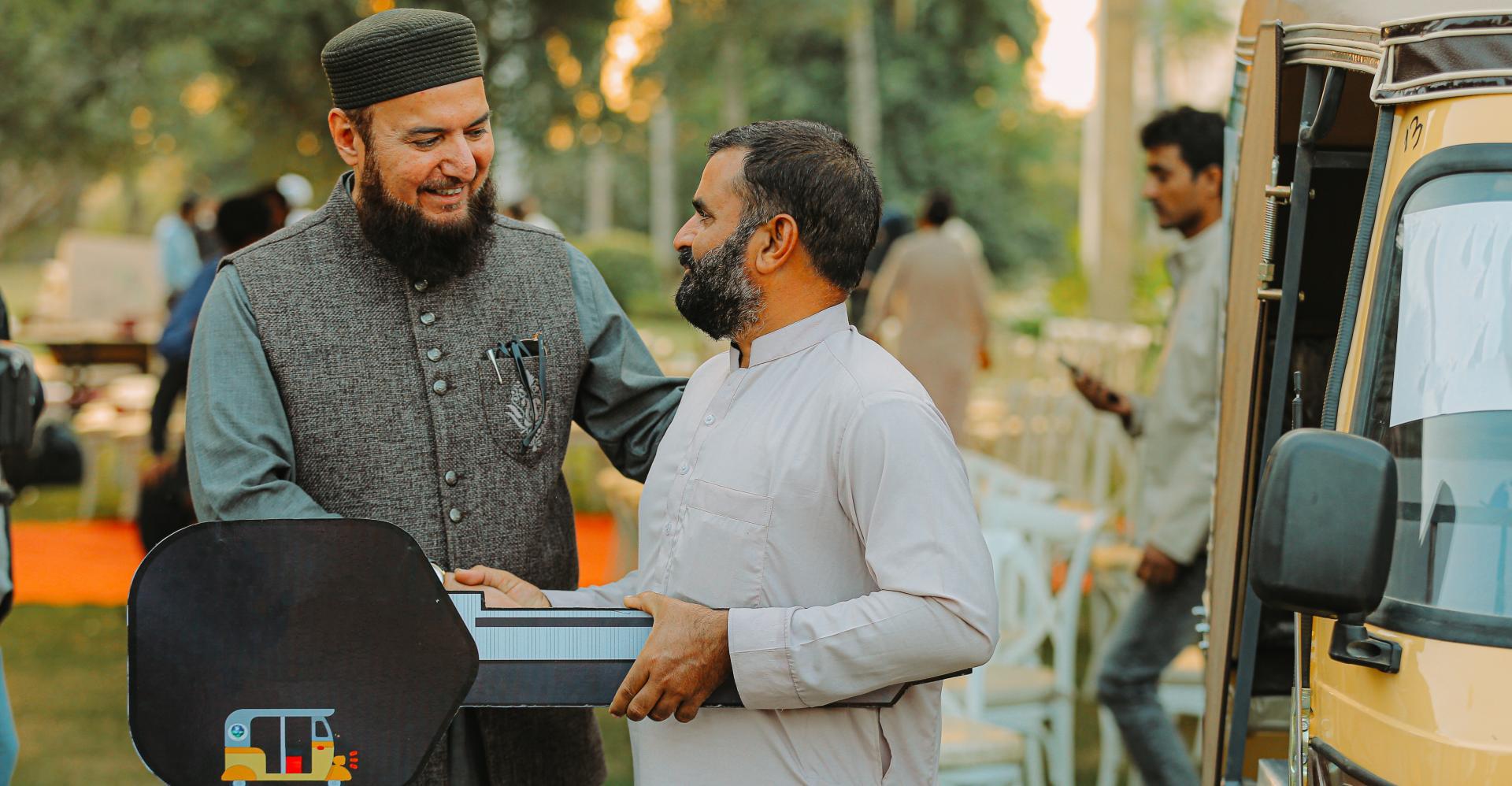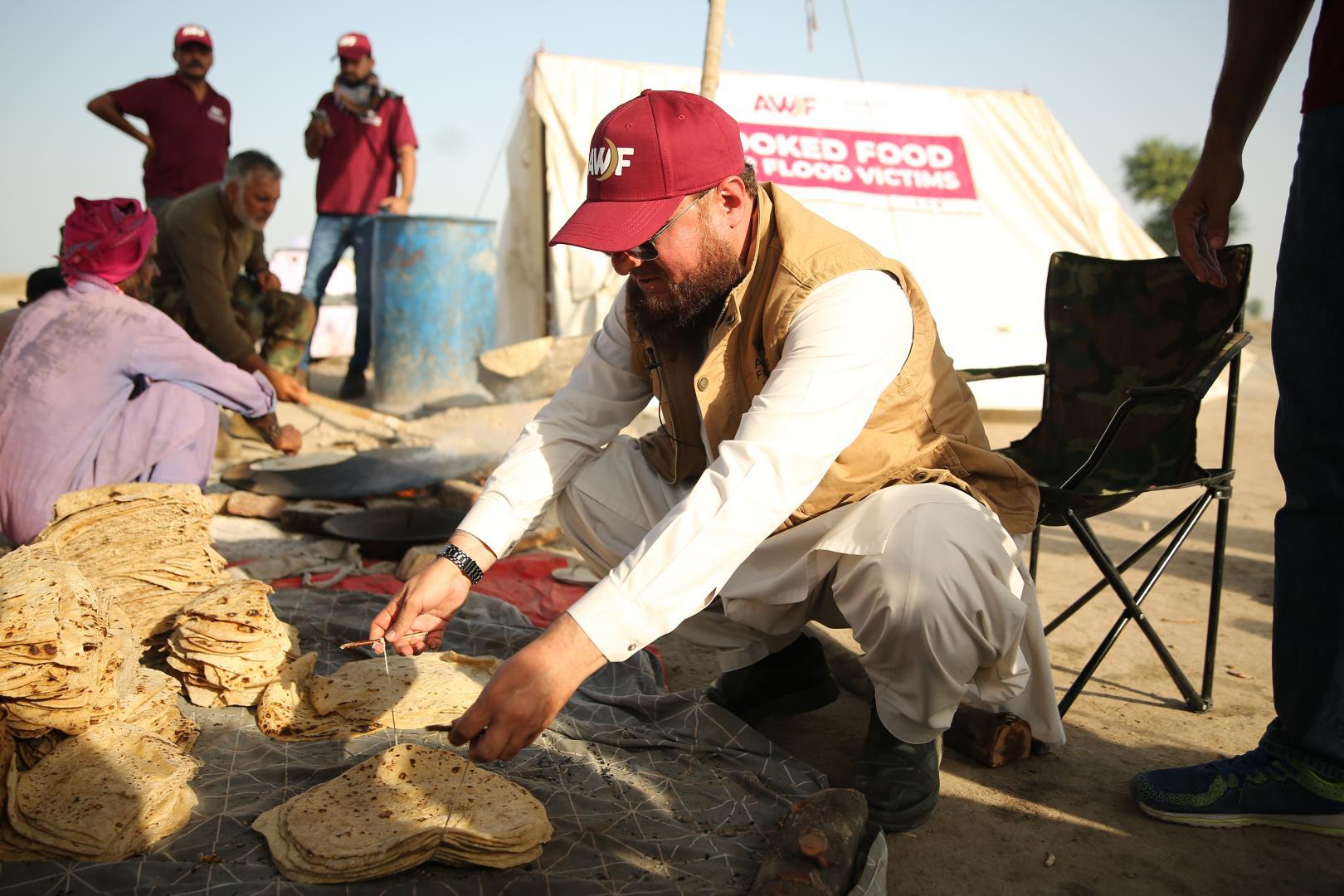



Al-Wahab Foundation, formerly known as Ummah Charity International, is a UK-based charity established in London in 2012. Chaired by Mufti Abdul Wahab, we are dedicated to forming innovative and sustainable solutions to poverty. To learn more, visit https://alwahabfoundation.org/about-us/.
Yes, you will receive a detailed report outlining the poverty-relief solutions your money was allocated towards, explaining the specific resources, facilities, and/or people that benefitted from your contribution. Images from the location are included.
We allocate the entirety of your funds to the cause you donated towards, and in the instance of a general contribution to AWF, we will make a judgment as to where your money is best suited. In any case, a detailed feedback report is sent to our donors after the completion of the project and the allocation of the funds.
You can make a donation on our website using a debit or credit card or PayPal. You can call us at 0208 903 8944 to make a donation using your debit or credit card. You can make a cash donation at our office. You can make a donation through a cheque named to Al-Wahab Foundation.
At Al-Wahab Foundation, we work hard to ensure that you have a trouble-free experience, however, we realize that errors can occur. Under UK Charity Law, charities are not permitted to refund donations, other than in specific circumstances. All refunds will be made in the same form of payment originally used for donating. Note: Under no circumstances are cash donations refunded unless the receipt is presented. The refund will be issued via cheque.
Yes, because we install hand pumps for families, not entire communities.
No, because water wells are for your entire community. You can however give Sadaqah e Jariyah towards water wells.
£5
£150
The £120 is used to provide people daily Iftar to people all month in Ramadan.
No, as we arrange daily iftars for everyone, we cannot be sure that everyone is a mustehqeeen.
Yes, you can contribute any amount. You can also contribute by donating a £100 musallah.
No, because you can only give zakat to individuals, and masjids are used by entire communities.
Yes. A 100% Zakat policy means that every penny we receive for Zakat is used strictly for charitable purposes. Donations go towards a charity-only bank account, from which the funding is used solely for our appeals.
If you are a mentally stable Muslim adult and your savings are equal to or above the worth of 87.48 grams of Gold and 612.36 grams of Silver, then you are liable for paying Zakat.
Your Zakat is 2.5% of your total yearly savings.
You can calculate your Zakat accurately with our Zakat Calculator here.
For every pound you donate to AWF, we can claim an additional 25p from the government if you are a UK taxpayer that has paid UK income / Capital Gains Tax during that tax year. You simply need to make a Gift Aid declaration via a form.
You can pay your Zakat at any time during the year; however, most people choose to give their Zakat during Ramadan for the added rewards that the holy month brings.
No, unlike Zakat, there is no upper limit for Sadaqah, you can give as high or as little amount you wish to with the intention of Sadaqah.
Yes. A 100% Zakat policy means that every penny we receive for Zakat is used strictly for charitable purposes. Donations go towards a charity-only bank account, from which the funding is used solely for our appeals.
Yes. A 100% Zakat policy means that every penny we receive for Zakat is used strictly for charitable purposes. Donations go towards a charity-only bank account, from which the funding is used solely for our appeals.
We curate our monthly Food Pack carefully, making sure that we include all items needed to sustain an average family for a month. The food pack’s contents include, but are not limited to: wheat flour, rice, oil, sugar, lentils, salt, spices, powdered milk, tea, etc.
The £120 goes towards buying, packing, and distributing food items commonly consumed during Iftar in underprivileged Muslim communities. The Iftar boxes include lighter food items (like dates and fruits) for breaking fasts and also fulfilling warm meals like rice or chicken.
Our teams in Pakistan research and identify high-risk food insecure areas in both urban and rural areas, we then allocate funds for cooked food in those areas accordingly.
Because it takes time, resources, and money to set a place for the distribution of cooked meals, it is more efficient to feed a large number of people at once, rather than distributing smaller number of meals periodically.
The monetary/ charitable compensation a Muslim pays for involuntarily missing one or multiple fasts.
The Fidyah of missing one fast is feeding a person in need two full meals, which amounts to £5 as of Ramadan 2022; the compensation of missing all 30 fasts involuntarily would amount to £150.
Kaffarah is the monetary/charitable compensation a Muslim pays for missing a fast voluntarily.
The Kaffarah of missing one fast is feeding 60 impoverished people two full meals, which amounts to £300 as of Ramadan 2022; the compensation of missing all 30 fasts voluntarily would amount to £9,000.
Fitarana is a charity in the form of food that every Muslim (adult and non-adult) is liable to give towards the end of Ramadan, before Eid ul Fitr to a poor person/household.
Technically, Fitrana is equivalent to two handfuls of food, which can be read as one meal. Currently, one person’s Fitrana amounts to £5 in the U.K.
If you have enough food in your household that you know that after every member is fed for two days, there will still be leftovers you are liable to pay Fitrana.
No, AWF uses the money you donate to rebuild and renovate already existing (but non-functional) mosques, build on waqf or communal land. This means you will NOT be the owner of the land or the building you donate towards.
Yes! You can contribute any amount you afford towards the construction of a Mosque from our dropdown donation menu. You can also donate a £100 Mussallah to earn the rewards of Sadaqah e Jariyah.
A small mosque we renovate can normally accommodate between 80 and 120 people.
Normally, the larger mosques we’ve helped restore/ renovate can accommodate around 300 people.
Normally, it takes around 8-9 months to complete a mosque.
Of course! However, AWF will not be responsible/liable for any monetary expenses (including international or local travel, accommodation, etc.)
No, by Islamic law, you cannot give Zakat towards the construction of a mosque.
YES! You can support an entire Maktab by donating any amount you can.
On average, it takes 3 years for a student to become Hafiz e Quran. However, sometimes students do have to leave the hifz mid-way due to familial situations, in which we enrol another student to continue the process.
Yes, you can sponsor a child’s education in our Maktab with monthly instalments of £30.
You can sponsor a student becoming a Hafiz e Quran with your Zakat; however, you cannot donate your Zakat the construction of a Maktab.
The financial status of a child’s parents and their own willingness to get an education are the two most important factors for admissions in our street school.
Our research has shown that people in low-income areas tend to overlook or ignore eye care-related health concerns as the prescriptions and treatments for such problems tend to be expensive. Our Eye Camps give free access to eye care, so long ignored health issues in these communities can be addressed.
We help arrange and fund eye surgeries for people who are identified as having treatable defects. The surgeries are performed by qualified doctors in local hospitals.
YES, you will receive a report detailing how your donation was used for the Eye Camp.
The Rozgar Project is advertised in urban areas of Pakistan and people who are interested in receiving a rickshaw or motorcycle with the Rozgar project pick up, fill and submit application forms from our Pakistan office. The form helps us determine the financial situation and eligibility of each applicant.
It’s simple, if they have a valid driver’s license, ask them to visit the Pakistan office of Al-Wahab Foundation and pick up an application form for the Rozgar Project, help them fill and submit the form, which asks basic questions regarding income, numbers of dependents, etc. We will review the form and let them know if they have qualified to receive aid through the Rozgar Project.
In Pakistan, working outside the house is still highly stigmatized for a large number of women. Therefore, through the distribution of sewing machines, we ensure that women can earn a living for their families from inside the safety of their homes.
No, due to Covid-19 government restrictions, sewing training courses have been temporarily halted but we are still distributing sewing machines to women in need. We plan on resuming the courses once the lockdowns ease.
The items for this project’s food pack are carefully curated to include food with longer shelf life that can last long without refrigeration. Items like juice boxes, tinned fruit and vegetables, tinned pasta, etc.
Our Eid gift packs are filled with things designed to make children happen. These include items like such as new toys, games, clothes, shoes and sweets.
Support Our Cause
Processing...